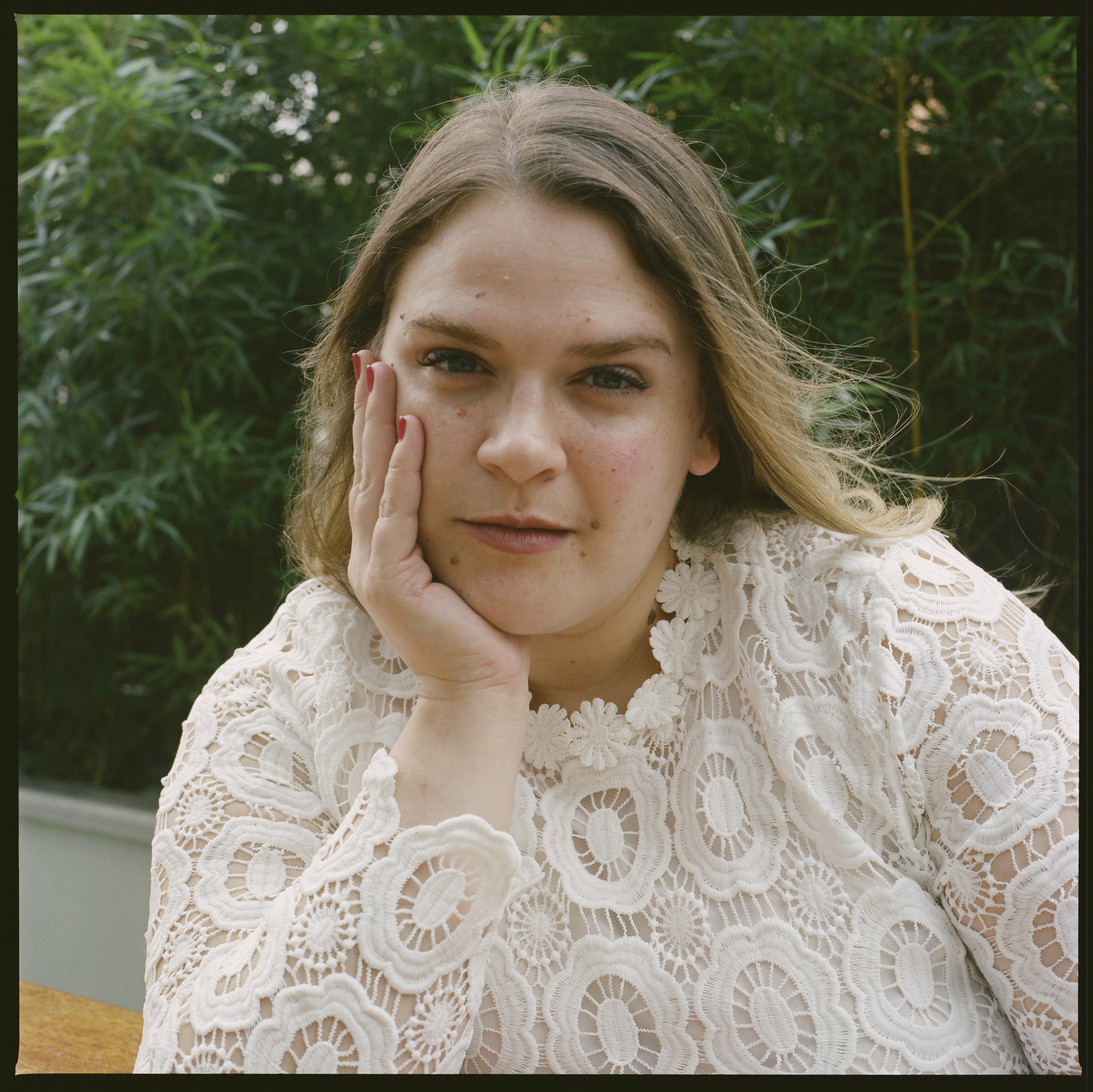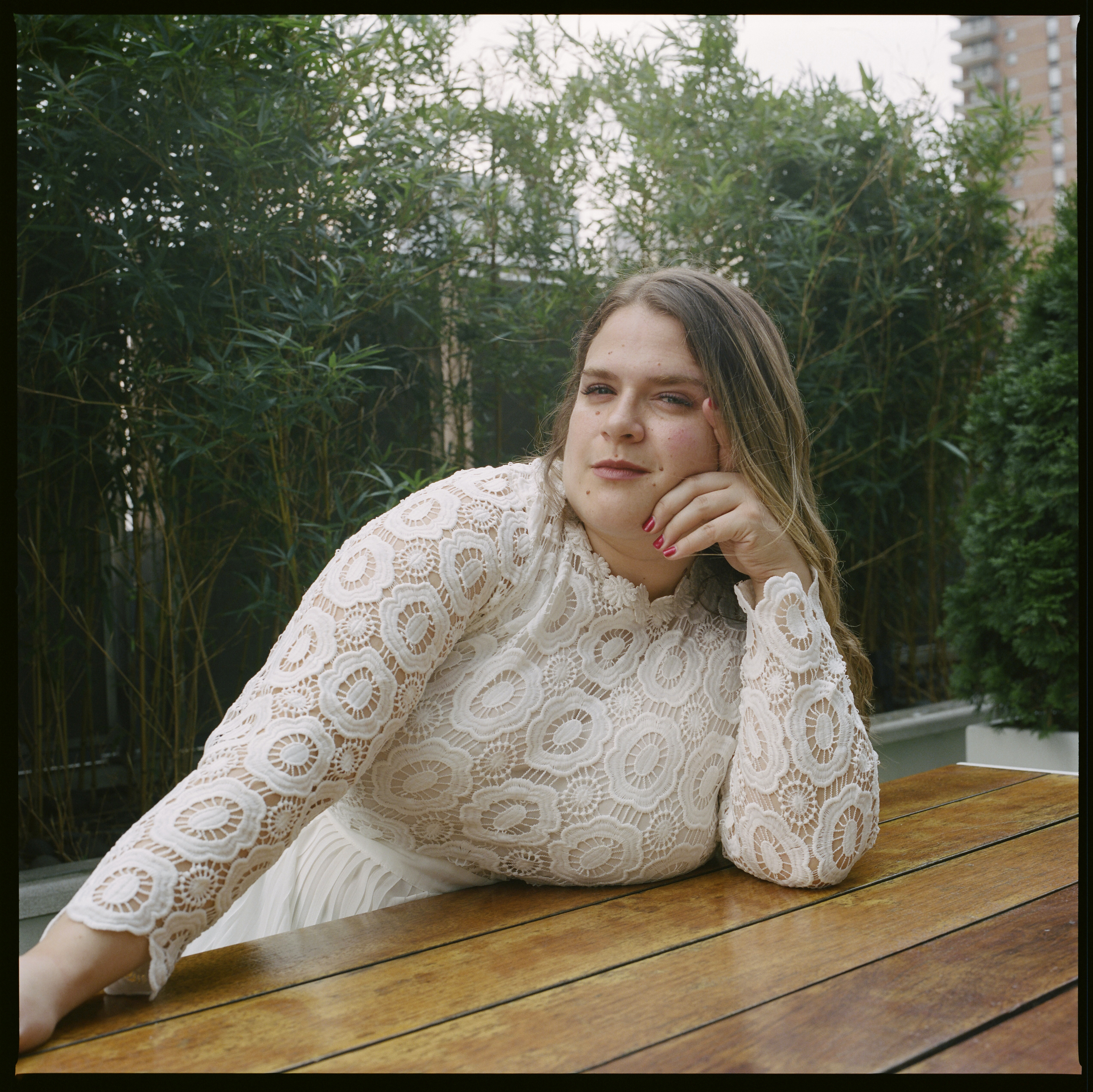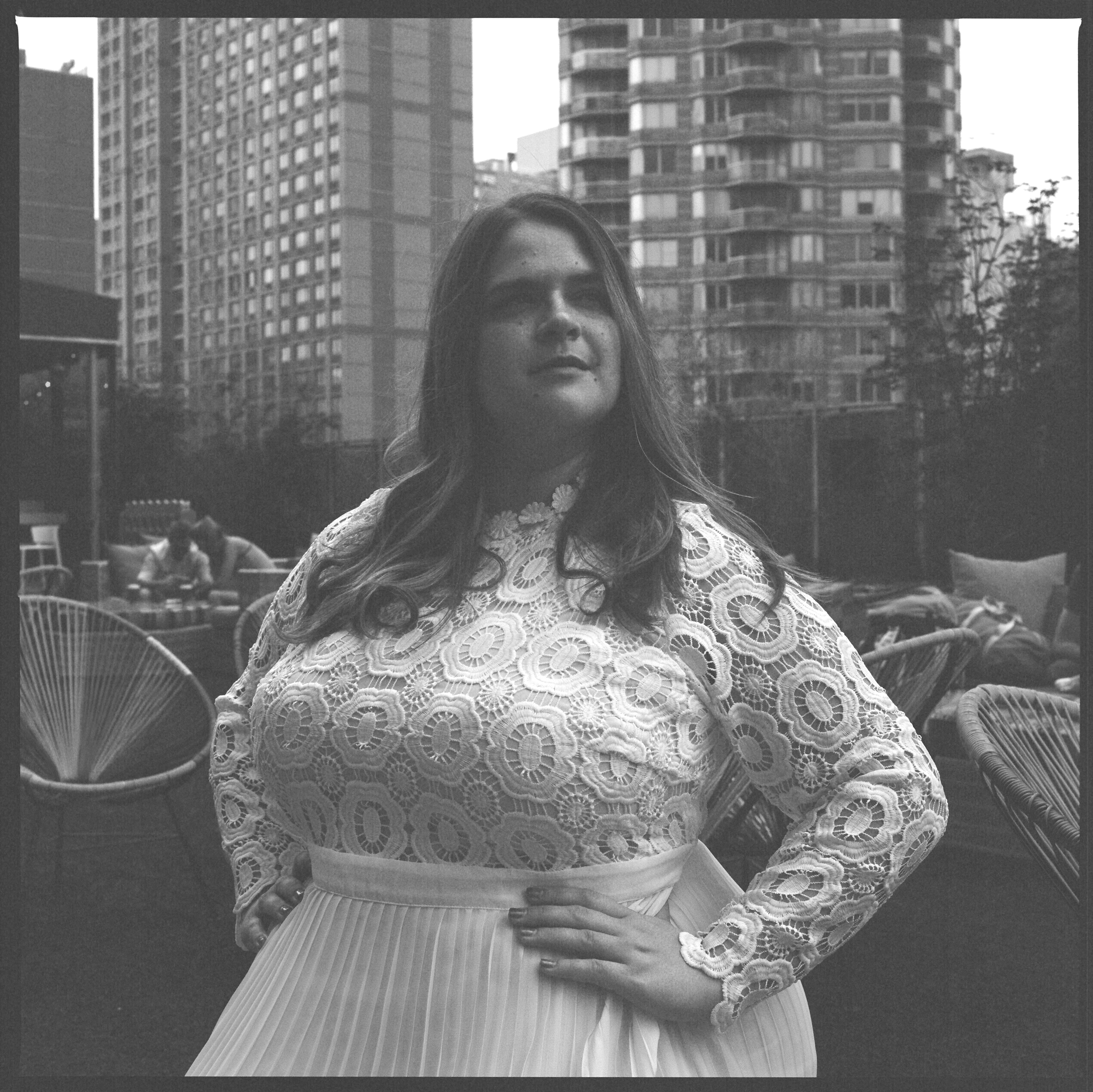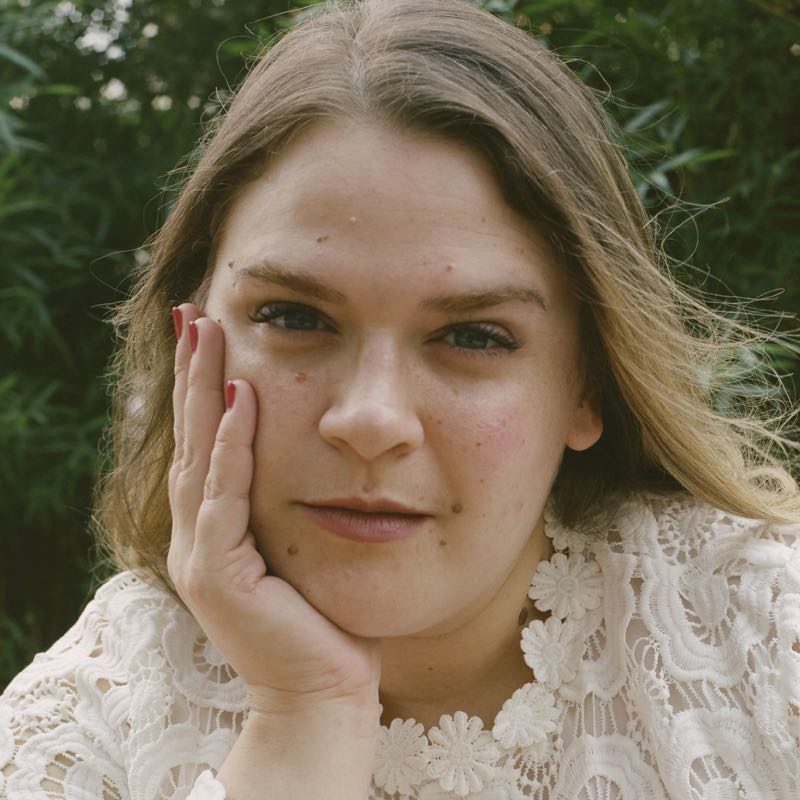Head Over Heels With Bonnie Milligan

August 21st, 2018
In Head over Heels, Bonnie Milligan does not portray a typical princess. Her character, Princess Pamela, is hilarious, strong-willed to the point of throwing a tantrum onstage, and unabashedly confident in who she is—at least on the outside. Unlike shy, modest fairytale princesses who yearn to be rescued by a prince, the unconventional Pamela yearns to understand the attraction she has begun to feel towards her lady-in-waiting Mopsa. Then again, not much in Head over Heels strives to be conventional. The new Broadway show, which New York Magazine’s Sara Holdren describes as an “Elizabethan pastoral sex-romp jukebox musical,” combines songs from The Go-Go’s catalogue with the more archaic story of The Countess of Pembroke’s Arcadia written by Sir Philip Sidney in the late 16th Century, when Elizabeth I ruled England and Shakespeare ruled English theatre (Fun fact: Charles I quoted some of Princess Pamela’s lines from the original Arcadia, just before he was beheaded. Bonnie may well be the only actor in Broadway history to play a character who was referenced in a monarch’s last words). This 21st century interpretation of Arcadia is wildly playful, and involves shepherds pretending to be Amazons, an oracle played by the first transgender performer to originate a lead role on Broadway, not to mention an all-female band channeling the feminist spirit of The Go-Go’s. This summer, I sat down with Bonnie to discuss her Broadway debut in Head Over Heels, her thoughts on playing Pamela, and more.
You’ve been with the show since the very beginning of its development, and had the chance to experience the whole Head over Heels journey, with different writers, linguistic styles, and tones. What has that development process been like for you?
I did the very first reading, four years ago in the city. It’s crazy because I got asked to do it by the director at the time, which was Ed Sylvanus Iskandar. I had worked with him at The Flea Theater, and that’s where Jeff Whitty, who conceived [Head over Heels], had seen me do a couple of Ed’s shows. So, they asked me to be a part of the first reading, which was really exciting because I was non-equity. I had no agent. I had nothing. It was amazing to get in on the ground floor. The following year, we went to the Oregon Shakespeare Festival. All of a sudden, the script was in iambic pentameter—it hadn’t been before—and it was with one of the best acting companies in the country. I got to be a part of the season there, and I learned a lot. I think I grew a lot as an actor. Then, [director] Michael Mayer came in and took over. We had a brand-new team, and a re-tool. It was just a rollercoaster; that’s the best way I can describe it. It’s been really exciting. I was just in for the ride, to see where it goes, and here we are. It’s been amazing. I’ve always dreamed of originating a role, so to get to do that on my Broadway debut is unreal and amazing.
Have you gotten to help shape the character of Pamela and put your own spin on her over these past four years?
Oh, for sure, for sure. In the beginning, Jeff said he’d written things with me in mind. The role is tailored to where my sense of humor goes. James Magruder, our adapter, has definitely stayed on that train of being really kind and generous, and going where my natural sense of comedy goes. It’s been wonderful. And it’s been really important to me to make her a real, full human, not a bad guy. She’s just a little complicated, and maybe vain. Everyone has told her that her whole worth is in her beauty, so it’s on her to discover what else is inside. It’s been a fun journey to make her a real person.
It’s refreshing to see a Broadway leading lady have a temper tantrum, show self-confidence, and behave in ways that women, especially princesses, are typically socialized to avoid.
So many journeys for women, in so many ways, are about how they can find out how to love themselves, and the right man will show them that they’re really beautiful inside. That kind of crap, you know? It’s like, no, that’s not [Pamela’s] journey! She’s this woman who loves herself immediately. I love the temper tantrum. I love that she gets to just be in her emotions unapologetically. There’s so much stifling of women, especially this idea of princesses. We address that early in the show with the song “Good Girl,” in which the lesson that we’re taught is to be good girls. I’m trying to teach that to my younger sister, who is clearly struggling with liking this boy that our dad just said she can’t be with because he’s a shepherd. And I’m coming from a place of, “I’ve already learned this lesson.” You have to smile till it hurts, but then still throw the tantrum. Then we find our journey of still seeking our own happiness is exciting and really cool.
Right. It’s so nice to see a sister dynamic take center-stage in a Broadway musical. There’s been a real dearth of that in the musical theatre canon.
I know. I love it. I love Alexandra Socha [who plays Philoclea]. She’s so lovely and talented. It’s been fun to discover. Early in rehearsals, one of us—I don’t know if it was her or me—grabbed for the other one’s hand early on, and that’s become part of the dynamic. It’s also informed Pamela’s journey. I find myself always holding hands with people in the beginning of the show, whether it’s Mopsa, or Philoclea, or my mom. As people start to pull away from me for certain reasons, no one is holding my hand anymore, which kind of drives me to the temper tantrum, where I don’t have anybody. That sense of touch and that closeness is something that Pamela really values and needs. It’s been great building that sisterly dynamic. Some of the dialogue when I’m calling her plain, could lean [towards seeming] mean, but it’s utter love. I’m like “Just put on your hair, baby girl. Let’s get you better clothes. It’ll be fine.” It’s unabashed love for my sister, and her for me. It’s a beautiful thing to discover, and Alexandra and I really worked at that being a strong dynamic.

It’s also great that you, as Pamela, get to have these relationships with other strong, complex female characters. Not only with Philoclea, but also, for instance, with Mopsa.
It’s amazing. And it’s great working with Taylor Iman Jones too, and finding our own dynamic. She’s newest to this recent cast. I’ve played with different actresses, in different versions, and so it was very important to me [with Taylor Iman Jones] to be like, “I want to start fresh. This is ours. Just because I’ve done it before doesn’t mean anything. Let’s find our version of Pamela and Mopsa.” So, we’ve really worked to find a dynamic of the strong friendship and love before it turns into anything else.
There’s a really interesting rapport that occurred back in the day when aristocratic girls would have ladies in waiting who were almost like sister figures, best friends, or confidantes, but they were also technically servants who dressed them and took care of them. It was fascinating to observe that power dynamic playing out between Pamela and Mopsa.
Yes. It’s been fun to find the joy in it. We have these bickering things in the beginning. Pamela and Mopsa love to do this, and Mopsa is the one who keeps Pamela in her place. Again, Pamela never means to come off mean, so Mopsa is the one that says “You can’t do that.” It’s playful. So, when things start to stir underneath it, that’s what changes the dynamic of bickering and why [they sing] “Automatic Rainy Day.” We’ve never been in a position like this before, where suddenly something feels dangerous and hard, but it’s like, “Wait, we fight all the time and we love it; what’s going on? I don’t like this!” It makes for a fun dynamic shift all of a sudden, because we had the strong bond before.
Some of these characters and plot points are new to the musical, but a lot of the original story was based on Philip Sidney’s Arcadia. Had you encountered that work before?
I hadn’t, no. I had never read it in an English class.
In that case, what was your initial reaction to the more Elizabethan elements in the show’s story and tone?
Well, it definitely was very different at the very first reading. There were a lot of different characters, and again, it wasn’t in iambic pentameter. But when we went to the Oregon Shakespeare Festival, suddenly it was in iambic pentameter, and there were so many nods to the Shakespearean tropes that Jeff Whitty had planted in there. Working with that company, they have amazing vocal coaches that go through the text, and we had individual sessions at all times to make sure we were speaking text correctly, stressing the right things, because it is iambic pentameter. I went to school for acting and I had Shakespeare classes and all that, but [being at Oregon Shakespeare Festival] was a great refresher. It really reminded me, “Oh wow, you really saw all the comparisons [to Shakespeare in the script],” when you’re working with people at the top of their game.
Not only does the cast of Head over Heels navigate iambic pentameter, but you go back and forth between that and belting your faces off, performing 1980s rock songs by The Go-Go’s. How do you approach the balance of segueing from one style to the other?
I think what’s helpful is that in a song, it is verse. You suspend your disbelief when you head into a song no matter what. What’s great about the songs, hopefully in any good musical, is that they’re propelling the plot forward. So we need the song, it’s not just stop and have a number. It just goes right on to your next acting beat, and it’s telling you where the emotional life is heading, so it’s great. And then, to sit in The Go-Go’s jam of it all is not too shabby.
The Go-Go’s, who’ve been described as the most successful all-female rock band ever, were emblematic of strong, kick-ass women in their day. Would you say that’s reflected in the sound and spirit of Head over Heels?
Oh yeah. There is a strong feminism power message in our show for sure.
Do you have a favorite song that you sing as Pamela?
I love the opening number [“We Got The Beat”]. I do love singing “Beautiful.” It’s fun to just indulge in the joy of that song. You start off, and then everybody comes in and is dancing around you. It’s thrilling. That I get to stand on zero and belt it out is amazing; it’s really cool.

In the musical, one of the major catalysts is an oracle that makes some intense and unavoidable predictions. Has doing this show motivated you to reflect upon your own beliefs about fate or free will?
I’ve always come from the idea that what’s meant to happen will happen. Especially being an actor. You go out for so many gigs, and you get so close, and you don’t get it. That was really happening to me a lot, for sure, right before this show. It’s hard not to get discouraged, but [instead] to believe that something is supposed to be behind all of this. It has to be for a reason; it’s not my time. I do believe in free will, as well. But I think there are certain things that, if they’re meant to happen, you can’t stop, no matter what you do. Like a job. If you go in, and you’re like, “Oh my gosh I messed up so bad,” in the room, but you’re meant to do that show, nothing you could do would be so bad as to stop it from happening. Nothing you can do, if it wasn’t meant to happen, can keep it from not happening. So, it’s just a way to stay sane and to be like, “I don’t know what the future holds but I can do all I can to be prepared for everything.”
Head over Heels has reached Broadway during a very significant socio-political era. The show now has the opportunity to make an impact on a wider culture. What do you hope audiences are taking away from this musical?
I hope people come in and just think about opening up their hearts to everyone. I hope they say to themselves, and to others, that finding their true authentic self and embracing it, and letting others embrace themselves, is what can lead to happiness. If someone is being their authentic self, how is that affecting your life? Is it? It’s not. The world is a much bigger, more diverse place than a lot of people give it credit for. I would hope they come in and say, “I watched somebody’s experience that was nothing like mine, and it was joyful and I see that that wouldn’t affect me.” You can see it in the king Basilius’ journey. He [starts out] being hard headed, and thinking that things have to be a very specific way; by the end, he says, “I didn’t even know any of you and I hope paradise is available.” Just be open to saying, “You’re all worthy of happiness.” Everyone is worthy of happiness, and I hope that people leave thinking that. Just be a little kinder. That’s really all it takes.

